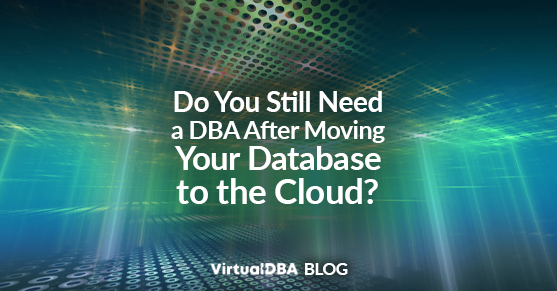Many businesses are moving their databases to the cloud, attracted by the benefits of scalability, agility, and cost savings. However, there’s a common misconception that moving your database to the cloud eliminates the need for a database administrator (DBA). This is simply not true.
Different Ways to Host Databases
There are many different ways to host databases, including:
- On-premises databases: On-premises databases are installed and run on the customer’s hardware. The customer manages the database, including provisioning, maintenance, and security.
- Cloud database servers: Cloud database servers are cloud-based servers optimized for running databases. Customers manage the database, including provisioning, maintenance, and security. This is simply moving your on-premise database to a server you manage in the cloud.
- Fully managed cloud database services: Fully managed cloud database services are cloud-based databases managed by the cloud provider. This means the cloud provider manages the database, including provisioning, maintenance, and security. However, the customer is still liable for tasks such as database design, implementation, and performance tuning. Amazon Relational Database Service (RDS), Azure SQL Database, and Google Cloud SQL are some examples.
- SaaS solutions: SaaS solutions are cloud-based applications delivered as a service to customers. SaaS solutions typically include a database, but the customer does not have direct access. The SaaS provider is responsible for all aspects of managing the database.
Do You Need a DBA for Each of These Options?
- On-premises databases: Yes, you will need a DBA to manage your on-premises database. This includes provisioning, maintenance, security, performance tuning, and troubleshooting.
- Cloud database servers: Yes, you will need a DBA to manage your cloud database server. This includes provisioning, maintenance, security, performance tuning, and troubleshooting.
- Fully managed cloud database services: While fully managed cloud database services take care of many of the tasks that a DBA would typically perform, such as provisioning, maintenance, and security, there are still some tasks that a DBA can help you with, such as database design, implementation, performance tuning, and troubleshooting.
- SaaS solutions: If you’re using a SaaS solution, then you will not need a DBA, as the SaaS provider is responsible for managing the database. The SaaS provider needs a DBA.
Why Do You Still Need a DBA After Moving to the Cloud?
There are several reasons why you still need a DBA after moving to the cloud, even if you’re using a fully managed cloud database service:
- Cloud databases are complex. Cloud databases offer many features and capabilities, making them tricky to manage. DBAs have the expertise and experience to help you manage your cloud database.
- Cloud databases are constantly evolving. Cloud providers are continually adding new features and capabilities to their databases. DBAs can help you stay up-to-date on the latest features and best practices for managing your cloud database.
- Cloud databases can be critical for your business. Many businesses rely on their databases for mission-critical applications. DBAs can help you ensure your database is always available and performing at its best.
How Can a Service Like XTIVIA’s Virtual-DBA Service Help You?
XTIVIA’s Virtual-DBA Service is a comprehensive DBA service that can help you manage your cloud database effectively, regardless of whether you’re using an on-premises database, a cloud database server, or a fully managed cloud database service like AWS RDS or Azure SQL. Virtual-DBA provides you with a team of experienced DBAs who can help you with all aspects of managing your database, including:
- Database design and implementation
- Database performance tuning
- Database maintenance and security
- Database troubleshooting
In addition to the benefits listed above, using Virtual-DBA Remote DBA Service from XTIVIA can also offer the following benefits:
- Cost savings: Virtual-DBA is typically less expensive than full-time DBA employees.
- Access to expertise: Virtual-DBA provides access to a team of experts with a wide range of skills and experience.
- Flexibility: Virtual-DBA can provide you with the flexibility to scale your DBA services up or down as needed.
Conclusion
Moving your database to the cloud can offer many benefits, but it doesn’t eliminate the need for DBA services. It can make DBA services even more critical. By using a service like XTIVIA’s Virtual-DBA Service, you can ensure that your cloud database is always available, performing at its best, and secure. Contact us today!

